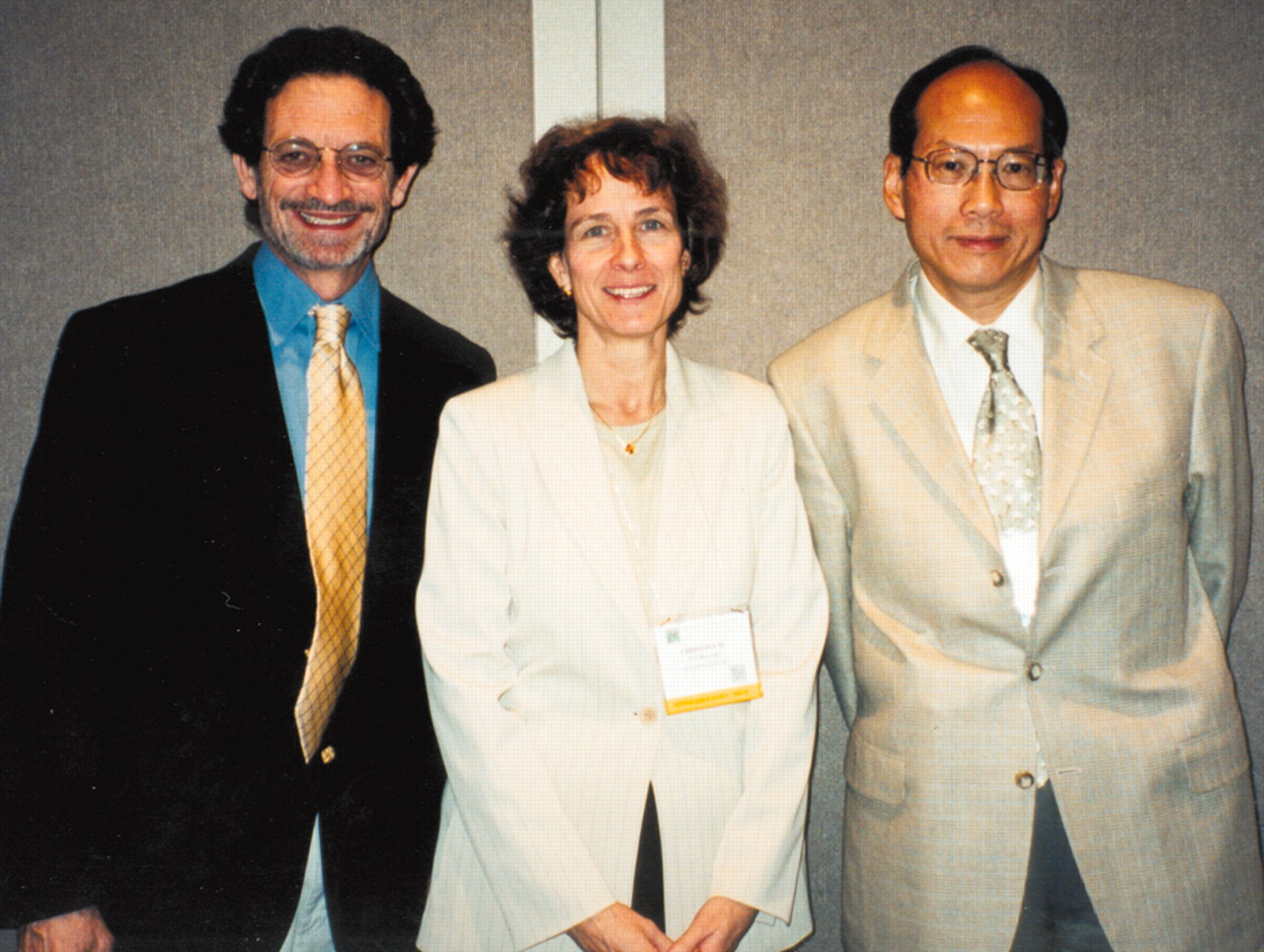Psychiatrists can do a great disservice to patients by sidestepping issues related to religion and spirituality in clinical practice, according to a panel of physicians who are trying to raise awareness of religion and spirituality in the field of medicine.
They came together to address these issues at APA's annual meeting last month at a workshop titled, “Spirituality and Religious Assessment in Clinical Practice.”
Only in the past decade has psychiatry begun to address a bias against spirituality and religion that dates back to some of the writings of Sigmund Freud, according to Francis Lu, M.D., a professor of clinical psychiatry at the University of California, San Francisco, and director of the Cultural Competence and Diversity Program in the psychiatry department at San Francisco General Hospital.
To address some of these biases, APA issued a resource document titled“ Guidelines Regarding Possible Conflict Between Psychiatrists' Religious Commitments and Psychiatric Practice,” which appeared in the May 1990 American Journal of Psychiatry.
The guidelines state that “psychiatrists should not impose their own religious, antireligious, or ideologic systems of beliefs on their patients, nor should they substitute such beliefs or rituals for accepted diagnostic concepts or therapeutic practice.”
In 1995 APA issued the Practice Guideline for the Psychiatric Evaluation of Adults, which advised psychiatrists to be “sensitive to the patient's ethnicity and place of birth, gender, social class, sexual orientation, and religious/spiritual beliefs.” (The adult evaluation guideline appeared in the November 1995 American Journal of Psychiatry.
Lu said that differences between psychiatrist and patient in terms of religious or spiritual beliefs “may impact the therapeutic relationship in terms of transference and countertransference issues.”
Ignorance Can Yield Misdiagnosis
Another danger is that if the treating psychiatrist is ignorant of or insensitive to the nuances of a person's cultural background or religious beliefs, he or she may incorrectly diagnose the patient's behavior as psychopathological, Lu stated.
What would normally be considered a visual or auditory hallucination may actually be part of a religious experience for some people—a vision of the Virgin Mary, for example—and not a symptom of a psychotic disorder, he pointed out.
“The other error a psychiatrist can make is to incorrectly judge certain behaviors or symptoms as related to a patient's cultural background instead of to psychopathology,” he added.
To minimize the occurrence of such mistakes, psychiatrists can use a category in the DSM-IV-TR, “religious or spiritual problem,” which is coded on Axis I. Religious or spiritual problems are not classified as mental disorders, Lu emphasized, but as other conditions that may be a focus of clinical attention.
Examples given in the DSM include “distressing experiences that involve loss or questioning of faith, problems associated with conversion to a new faith, or questioning of spiritual values that may not necessarily be related to an organized church or religious institution.”
Lu encouraged psychiatrists to be aware of “limitations in our knowledge and skills, as well as any biases rooted in our cultural backgrounds and experiences... instead of assuming that we know what is happening.”
Illness Seen as Punishment
A willingness to elicit and address patients' spiritual concerns in medical practice is “essential,” not optional, emphasized Christina Puchalski, M.D., an associate professor of medicine at George Washington University and director of the George Washington Institute for Spirituality and Health in Washington, D.C.
Physicians, she said, should recognize the role spirituality plays in a patient's perception of his or her illness and how it might affect the patient's decisions about treatment.
“I have many patients who refused to take their medications, including those psychiatrists have prescribed to them, because of their beliefs about what the medications or illness itself signifies,” she said.
Some patients may believe their symptoms can be cured through prayer, while others leave their medications on the shelf because they feel their illness is a punishment from God and “they don't deserve to be relieved of suffering,” Puchalski observed.
She stressed that spirituality may extend above and beyond subscribing to an organized religion to include what a patient believes to be his or her meaning and purpose in life.
The spiritual issues patients may bring up during treatment are varied and include hopelessness, anger at God or others, reconciliation, grief, and loss, she pointed out.
As part of her work at the institute, Puchalski teaches medical students and residents about supportive listening and helping patients to utilize their spiritual beliefs in coping with illnesses. “Hope, forgiveness, love, and other spiritual values can play a role in helping people cope,” she said.
Take Patients' Spiritual History
She also teaches them how to take a patient's spiritual history using the acronym FICA, which stands for faith and belief, importance, community, and addressing spiritual concerns in care (
see box).
Conducting a spiritual assessment is a way for clinicians to engage elements of a patient's spiritual life and is more about listening than asking questions, according to James Griffith, M.D., a professor of psychiatry and neurology and director of psychiatry residency training at George Washington University Medical Center.
Griffith advised attendees to “tune in to the ways in which the patient is engaging in spirituality” during treatment, and if there are no direct references to spirituality, it's acceptable for psychiatrists to ask if spirituality or religion is an important part of the patient's life, for instance, or if there is a spiritual community to which the patient belongs.
If the patient denies any ties to spirituality or organized religion, certain “existential” questions, Griffith said, can open the gates to a discussion of spirituality. Examples include asking the patient,“ Where do you find peace?” or “What has sustained you through hard times—where do you draw strength?” and “Why is it important that you are alive?”
“The next step is to listen,” Griffith said, for“ language that is pregnant with meaning.” Patients may speak about powerful experiences or what they regard as the ultimate truth. Ultimately, such discussions can facilitate progress in treatment, Griffith said.
Information about the George Washington Institute for Spirituality and Health is posted online at<www.gwish.org>.▪

